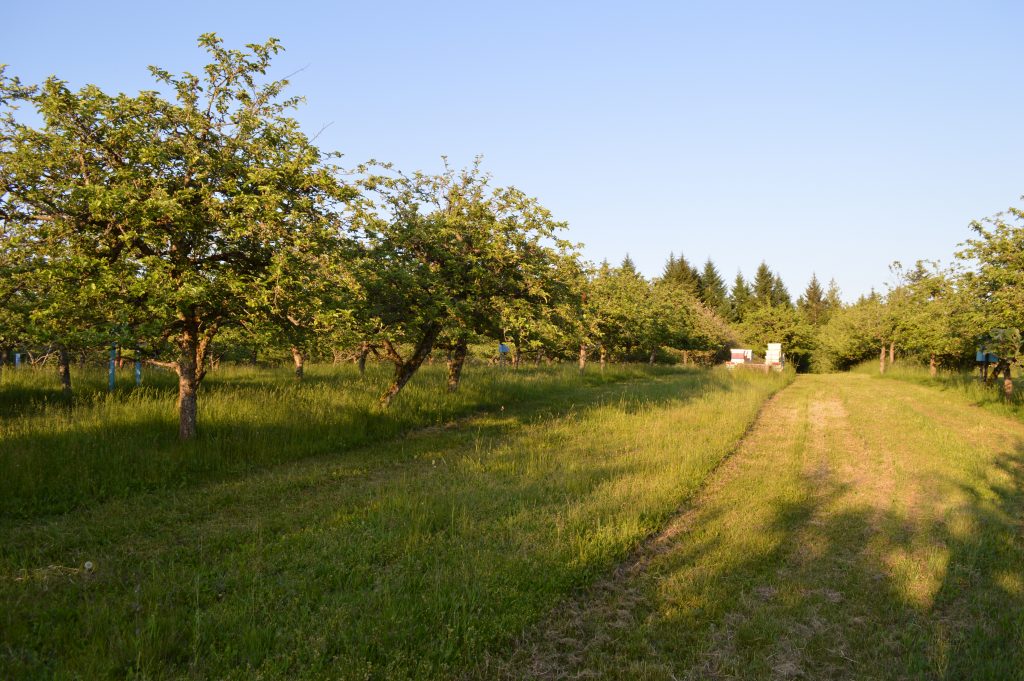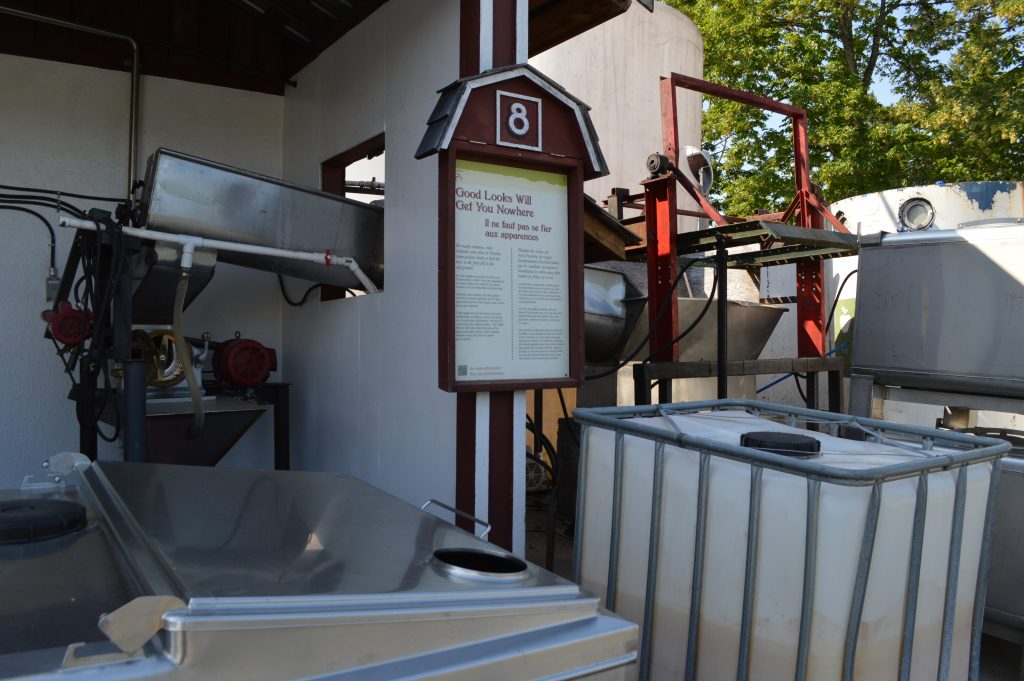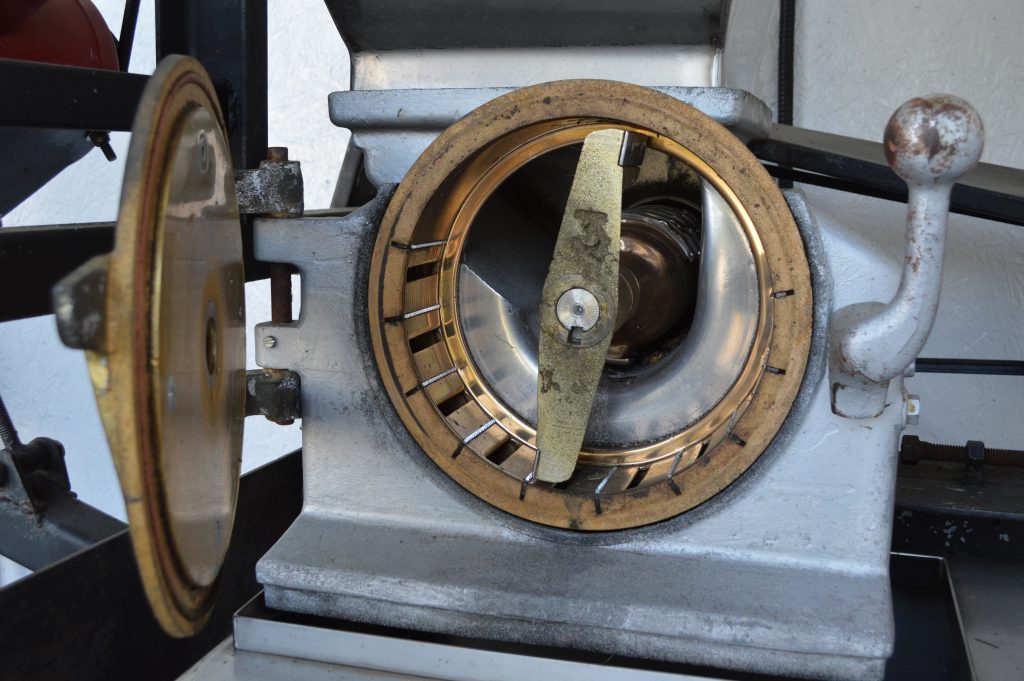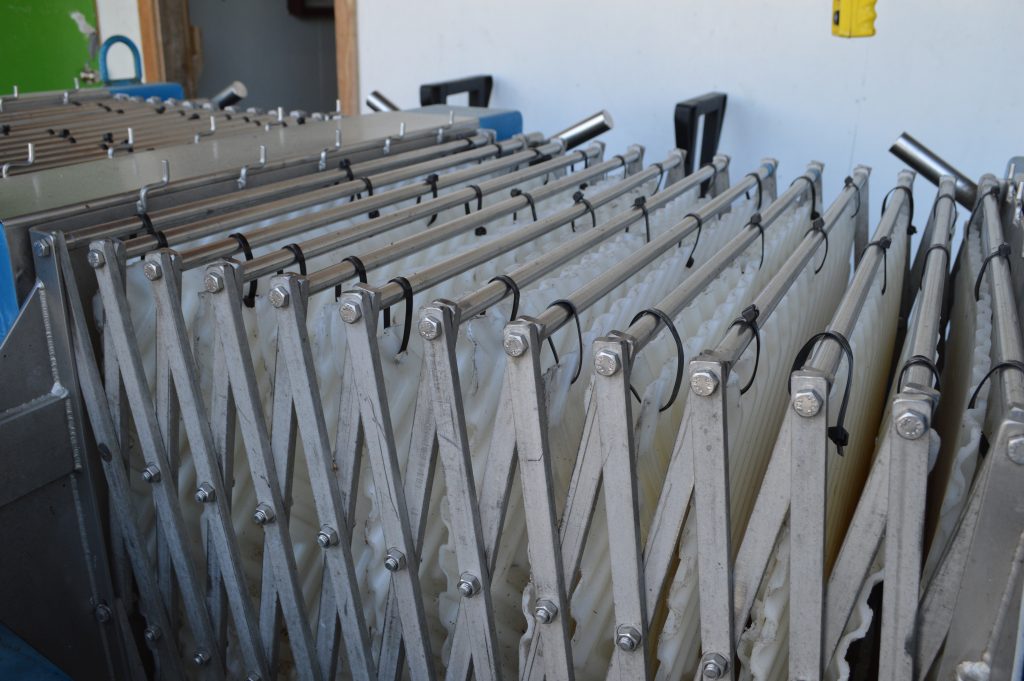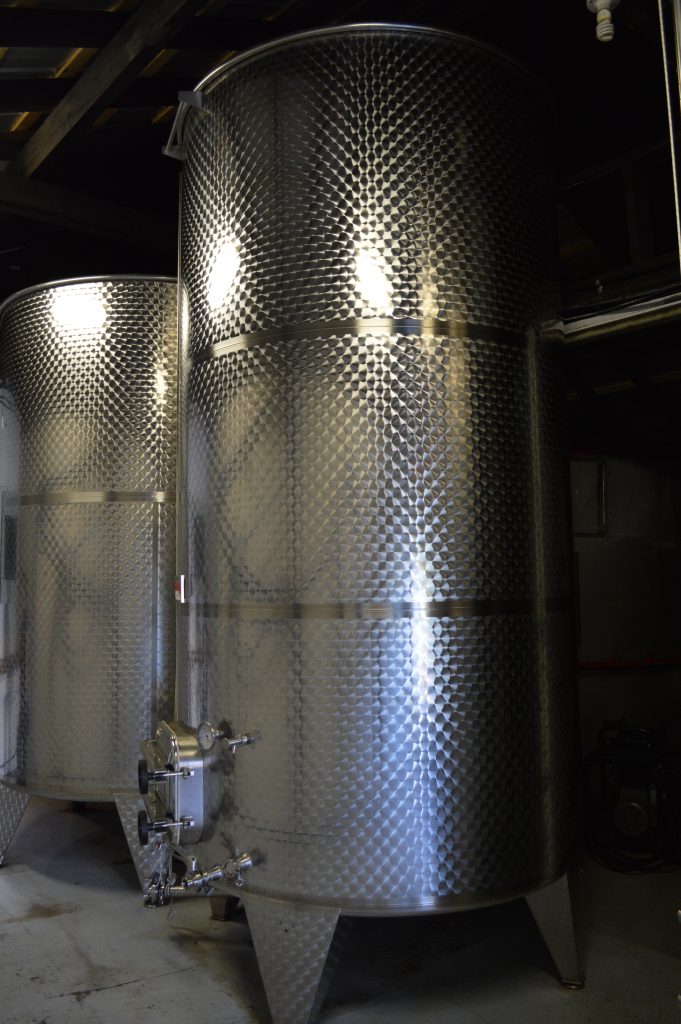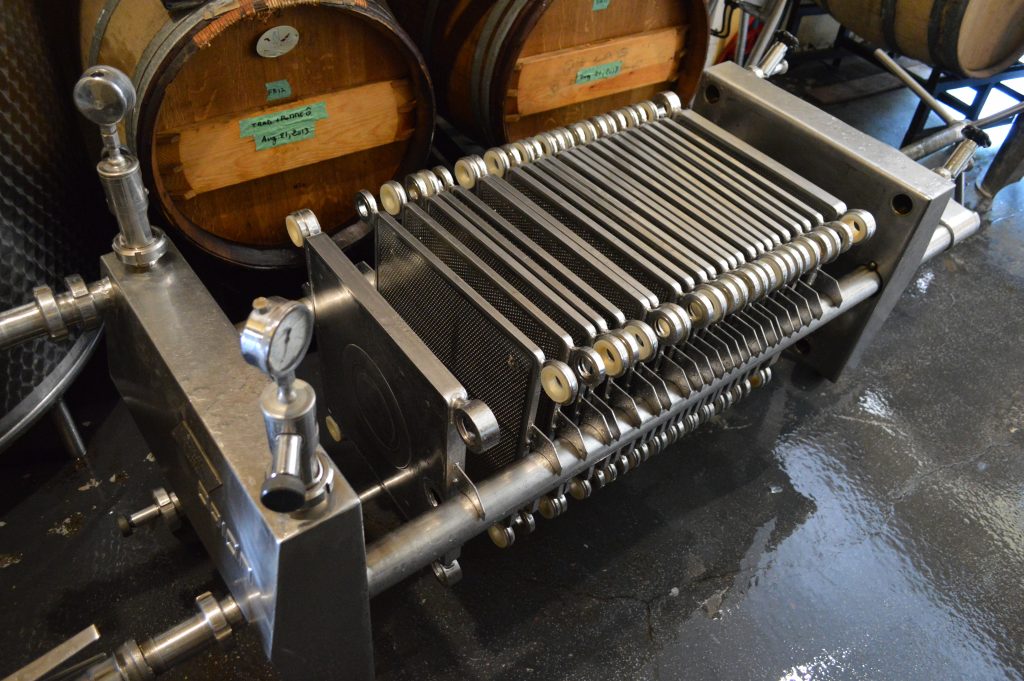A couple years ago I visited Merridale Estate Cidery in the Cowichan Valley on Vancouver Island. With so many folks around Edmonton making cider, and many of them looking for the fastest, most efficient way to produce a year’s supply, I thought I’d post some details from a commercial operation.
The apples at Merridale are all old-world cider varieties, basically inedible out of hand, and absolutely nothing like North American grocery store apples. They have names like Dabinett, Chisel Jersey, and Hauxapfel. The varietals are categorized as either sharp, bitter, bitter sharp, or bittersweet. Here “sharp” refers to acidity and “bitter” refers to tannin and astringency like you find in red wine, tea, and walnut skin, not true bitter flavour like you find in dandelion, radicchio, and hops.
A good cider is a balance of alcohol, acidity, tannin, and possibly sugar. The exact balance changes with regional styles. Traditional English ciders are usually bone dry and get their structure from acidity and alcohol. Sea Cider’s Wild English is a great example (though it’s Canadian). French ciders can go this way, but there is a certain French breed that is sweet, with very little acidity, getting its structure more from tannin. Cidre Kinkiz is one example of this style that is available here in Edmonton. I really hate that cider. Anyways. All Merridale ciders are a blend of multiple apple varietals.
I was surprised to see the trees in the orchard. I assumed that a commercial orchard would take pruning very seriously, as it gets more sunlight to the leaves and increases fruit quality and ease of picking. The trees at Merridale have nice lateral growth but are not as manicured as I had imagined. Not sure if it’s just too much work to prune such a large orchard, or these tree shapes give the most yield, or what.
In the fall the apples are harvested and washed before crushing.
This is Merridale’s “1960s Bucher Mill” crusher. The apples are loaded into the basin shown at right, under the red frame. An auger or conveyor carries them up the ramp to the left, where they are dropped into the crusher.
Here’s a view of the crushing mechanism.
This is the press. It’s an accordion-type structure supporting plastic sheets. At each end is a hydraulic pump that pushes the accordion closed and brings the plastic sheets close together. The apple mash is put into porous bags, and each bag is inserted between the plastic plates. The juice falls into a trough beneath the accordion.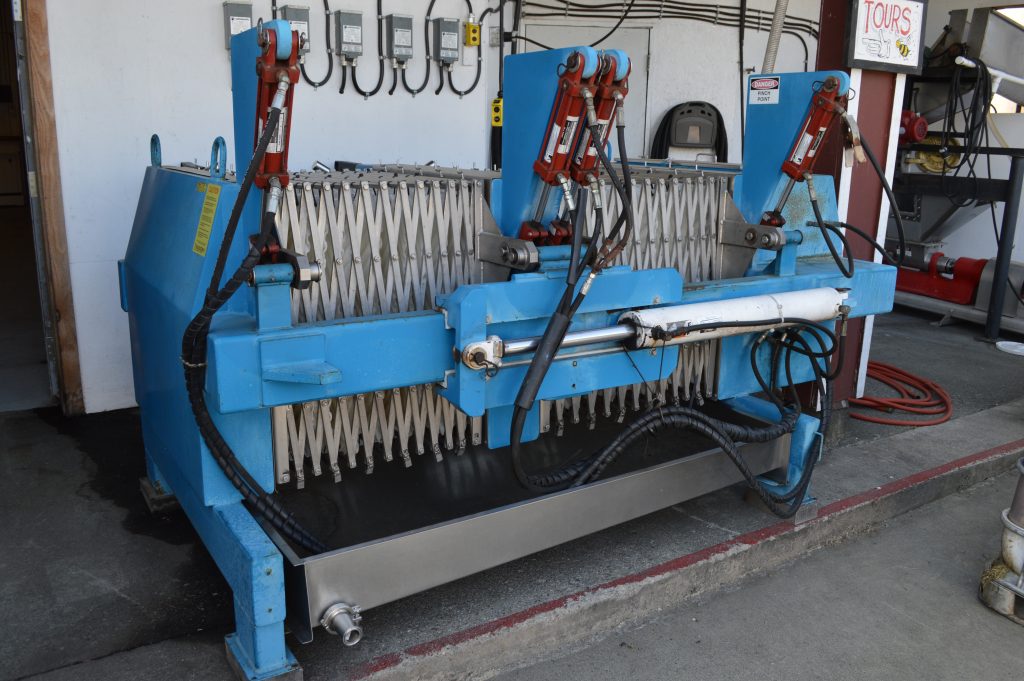
The juice from the first press is used for cider. Juice from subsequent pressing is high in tannin and acid and reserved for distilling. At Merridale 7 kgs of fresh apples can yield 4 L of juice.
Some of the cider at Merridale is chaptalized, notably for their Scrumpy, which is 11% ABV. The natural sugar in their apples would only yield about 7% ABV.
Here are some of their fermentation tanks.
The finished cider is filtered at 1 micron using this contraption. Merridale says that this filtration clears the cider of sediment without stripping the beverage of its fresh apple character.
Merridale cider is not pasteurized and is still very much alive when bottled.[1] They use plastic bottles instead of glass (less explosion risk), and the bottles absolutely need to be kept refrigerated throughout distribution to prevent any undesired fermentation. Bottling is done with a “1960 German champagne filler”. I wish I had asked more about that machine. CO2 is added at bottling.
Incredibly, I took no photos of their packaged product to show you, but you can check our their website.
It’s hard to find a truly dry cider (most are sweet, because, you know, only girls drink cider, and girls have to drink sweet things). The Merridale Traditional and Scrumpy ciders are great, and quite dry. They also make sweet varieties and even some pink ones containing berries.
Kevin made a video about Merridale, which is how we even knew to visit them in the first place. We actually stayed at the estate for two nights in one of their yurts. It was great to get a look inside an operation that produces craft cider and spirits.
Footnote
- I see on the Merridale website now that some of their ciders are indeed pasteurized, or available in both pasteurized and unpasteurized formats, so either they have changed their process, or maybe I misunderstood my tour guide.
